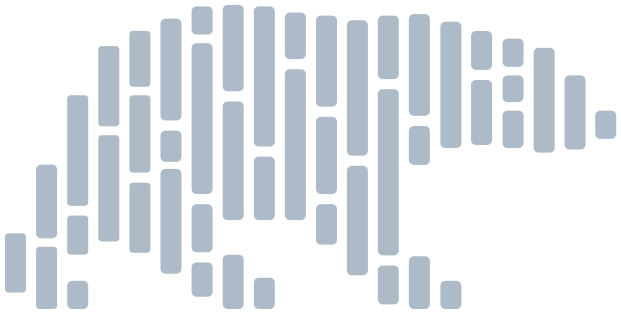polars.LazyFrame.collect#
- LazyFrame.collect(
- *,
- type_coercion: bool = True,
- predicate_pushdown: bool = True,
- projection_pushdown: bool = True,
- simplify_expression: bool = True,
- slice_pushdown: bool = True,
- comm_subplan_elim: bool = True,
- comm_subexpr_elim: bool = True,
- cluster_with_columns: bool = True,
- collapse_joins: bool = True,
- no_optimization: bool = False,
- engine: EngineType = 'auto',
- background: bool = False,
- optimizations: QueryOptFlags = (),
- **_kwargs: Any,
Materialize this LazyFrame into a DataFrame.
By default, all query optimizations are enabled. Individual optimizations may be disabled by setting the corresponding parameter to
False.- Parameters:
- type_coercion
Do type coercion optimization.
Deprecated since version 1.30.0: Use the
optimizationsparameters.- predicate_pushdown
Do predicate pushdown optimization.
Deprecated since version 1.30.0: Use the
optimizationsparameters.- projection_pushdown
Do projection pushdown optimization.
Deprecated since version 1.30.0: Use the
optimizationsparameters.- simplify_expression
Run simplify expressions optimization.
Deprecated since version 1.30.0: Use the
optimizationsparameters.- slice_pushdown
Slice pushdown optimization.
Deprecated since version 1.30.0: Use the
optimizationsparameters.- comm_subplan_elim
Will try to cache branching subplans that occur on self-joins or unions.
Deprecated since version 1.30.0: Use the
optimizationsparameters.- comm_subexpr_elim
Common subexpressions will be cached and reused.
Deprecated since version 1.30.0: Use the
optimizationsparameters.- cluster_with_columns
Combine sequential independent calls to with_columns
Deprecated since version 1.30.0: Use the
optimizationsparameters.- collapse_joins
Collapse a join and filters into a faster join
Deprecated since version 1.30.0: Use the
optimizationsparameters.- no_optimization
Turn off (certain) optimizations.
Deprecated since version 1.30.0: Use the
optimizationsparameters.- engine
Select the engine used to process the query, optional. At the moment, if set to
"auto"(default), the query is run using the polars in-memory engine. Polars will also attempt to use the engine set by thePOLARS_ENGINE_AFFINITYenvironment variable. If it cannot run the query using the selected engine, the query is run using the polars in-memory engine. If set to"gpu", the GPU engine is used. Fine-grained control over the GPU engine, for example which device to use on a system with multiple devices, is possible by providing aGPUEngineobject with configuration options.Note
GPU mode is considered unstable. Not all queries will run successfully on the GPU, however, they should fall back transparently to the default engine if execution is not supported.
Running with
POLARS_VERBOSE=1will provide information if a query falls back (and why).Note
The GPU engine does not support streaming, or running in the background. If either are enabled, then GPU execution is switched off.
- background
Run the query in the background and get a handle to the query. This handle can be used to fetch the result or cancel the query.
Warning
Background mode is considered unstable. It may be changed at any point without it being considered a breaking change.
- optimizations
The optimization passes done during query optimization.
Warning
This functionality is considered unstable. It may be changed at any point without it being considered a breaking change.
- Returns:
- DataFrame
See also
explainPrint the query plan that is evaluated with collect.
profileCollect the LazyFrame and time each node in the computation graph.
polars.collect_allCollect multiple LazyFrames at the same time.
polars.Config.set_streaming_chunk_sizeSet the size of streaming batches.
Examples
>>> lf = pl.LazyFrame( ... { ... "a": ["a", "b", "a", "b", "b", "c"], ... "b": [1, 2, 3, 4, 5, 6], ... "c": [6, 5, 4, 3, 2, 1], ... } ... ) >>> lf.group_by("a").agg(pl.all().sum()).collect() shape: (3, 3) ┌─────┬─────┬─────┐ │ a ┆ b ┆ c │ │ --- ┆ --- ┆ --- │ │ str ┆ i64 ┆ i64 │ ╞═════╪═════╪═════╡ │ a ┆ 4 ┆ 10 │ │ b ┆ 11 ┆ 10 │ │ c ┆ 6 ┆ 1 │ └─────┴─────┴─────┘
Collect in streaming mode
>>> lf.group_by("a").agg(pl.all().sum()).collect( ... engine="streaming" ... ) shape: (3, 3) ┌─────┬─────┬─────┐ │ a ┆ b ┆ c │ │ --- ┆ --- ┆ --- │ │ str ┆ i64 ┆ i64 │ ╞═════╪═════╪═════╡ │ a ┆ 4 ┆ 10 │ │ b ┆ 11 ┆ 10 │ │ c ┆ 6 ┆ 1 │ └─────┴─────┴─────┘
Collect in GPU mode
>>> lf.group_by("a").agg(pl.all().sum()).collect(engine="gpu") shape: (3, 3) ┌─────┬─────┬─────┐ │ a ┆ b ┆ c │ │ --- ┆ --- ┆ --- │ │ str ┆ i64 ┆ i64 │ ╞═════╪═════╪═════╡ │ b ┆ 11 ┆ 10 │ │ a ┆ 4 ┆ 10 │ │ c ┆ 6 ┆ 1 │ └─────┴─────┴─────┘
With control over the device used
>>> lf.group_by("a").agg(pl.all().sum()).collect( ... engine=pl.GPUEngine(device=1) ... ) shape: (3, 3) ┌─────┬─────┬─────┐ │ a ┆ b ┆ c │ │ --- ┆ --- ┆ --- │ │ str ┆ i64 ┆ i64 │ ╞═════╪═════╪═════╡ │ b ┆ 11 ┆ 10 │ │ a ┆ 4 ┆ 10 │ │ c ┆ 6 ┆ 1 │ └─────┴─────┴─────┘

